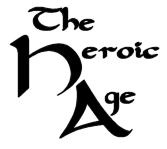Reviews
Jurasinski, Stefan. 2006. Ancient Privileges: Beowulf, Law, and the Making of Germanic Antiquity. Morgantown, West Virginia University Press. 184 pages. ISBN: 093705898X.
The premise of the book (originally a doctoral dissertation directed by R.D. Fulk at Indiana University) can be summarized succinctly, if a bit broadly: the many different editors and translators of Beowulf owe, for their solutions to textual problems and translations of obscure terms, as much to nineteenth-century myths about the Germanic past as they do to actual textual evidence. Jurasinski's study continues work done especially by E.G. Stanley and Allen Frantzen. Fortunately, he chose a quite specific field of investigation, that of law and of legal terminology, and Ancient Privileges, another welcome publication by WVU Press in their series Medieval European Studies, provides a worthwhile introduction to the major players in the nineteenth-century field of German and Germanic philology and a thorough explanation of the enduring importance of their contributions to the editing of Beowulf.
The first chapter discusses the influence on Beowulf's editors of Grimm's supposed finding of oral legal formulas in various texts. In short, Grimm argues that, because ancient (that is, pre-Christian and pre-Roman) Germanic law was oral and in verse, these legal adages are retained in Germanic poetry, such as Beowulf. Jurasinski provides two enduring examples of such emendation, ll. 2884–91 and ll. 3074–75. In both cases, a desire to see in the poem expressions of earlier Germanic law has led editors and translators to make choices validated by Grimm but hardly borne out by textual or other evidence.1 And while some of these choices may seem minor (in 2884, e.g., 'nu' for the MS 'hu') they confirm Jurasinski's point on the endurance of early nineteenth-century assumptions on the relationship between the poem and legal codes. Thus, Jurasinski's argument falls in line with the textual conservatism espoused by recent critics such as Kevin Kiernan.
The second chapter hones in on only one issue: the famous 'folcscare' of l. 73, in a passage which according to all modern glosses and translations explains that Hrothgar can distribute everything except for common land and the lives of men. A well-informed and interesting discussion (even if sometimes a bit confusing—early in the chapter Jurasinski seems to suggest that Bede's letter to Egbert would make for a good key to unlocking the riddle, only to deny that at the end) results in an interpretation of the line that causes much less difficulty and appears congruent with contemporary usage: 'folcscare' means ancestral land to be held within a family or tribe, land that a king cannot dole out. 'Public land,' Jurasinski argues persuasively, suggests a Germanic communalism that is no longer accepted by scholars outside the field of literary studies—and Jurasinski's note, that the survival of such translations is "primarily because of institutional barriers between literary and legal-historical scholarship" (66), is well taken.
A larger attempt at reinterpretation of the poem is suggested in ch. 3; Jurasinski argues that the Finn-episode should not be read (as it often is) as a critique of sorts on the "feud customs [that] had come to be seen as a basic and essential trait of Germanic culture" (90). Feuding, he suggests, may have been allowed, but that the blood feud expressed the highest desire of Germanic culture is a myth propagated by Wilda's 1842 book Das Strafrecht der Germanen. Jurasinski's analysis focuses specifically on the term 'worold rædenne' (1042), in the heart of the Finn episode, a term usually emended and then translated to mean something like 'custom of the world,' that is, the sacred duty of revenge. While Jurasinski argues strongly against this easy equation, he does not offer an alternative translation, a bit surprising since in earlier chapters he never hesitated to do so.
The next chapter also questions traditional (mis)conceptions about feuding, in this case related to the Hrethel-episode, the account by the hero of tragedy in the Geatish royal family. Jurasinski carefully analyzes the slippage in the glosses for the term 'feohleas' (2441)—all too easily 'inexpiable' (by monetary payment) becomes "remedied only with death" (115). Jurasinski traces this reading, in as much as Klaeber is concerned, to an article from 1890 by Heinrich Brunner, a German historian who argued that Germanic law could not comprehend death by accident and thus would punish accidental homicide severely, a punishment Hrethel cannot inflict because he is denied exacting vengeance within his own kin. Brunner conveniently uses Beowulf as evidence for the interpretation of Beowulf, very much in accord with the practice of Grimm Jurasinski criticized earlier. The two horns of Hrethel's dilemma are carefully examined, and Jurasinski attacks them both: on the one hand, Germanic law did in fact allow for monetary settlements in cases of accident and negligence, and even ridiculed what we today might call frivolous lawsuits; on the other, kin-slaying is attested in a wide range of sources. Thus, another interpretation based on evidence supported by the interpretation of literature rather than of history and anthropology is undermined.
In all, Jurasinski's study is sound and important. In his concluding remarks, he aligns himself again with the tenets of Frantzen's Desire for Origins, and I believe his deconstruction of some aspects of Beowulf's legal intricacies as expounded by critics and the influence those aspects have on our view of the period and the poem is quite valid. Jurasinski provides a source study of criticism, and while he is not the first to travel down this road2 he does allow a new look at the received assumptions about legal aspects of the poem as a century and a half of philological study heavily influenced by nineteenth-century Germanism have relayed them to us.
Having said that, I do have to confess being somewhat disappointed with the book. In the end, Jurasinski does not deliver much of a reinterpretation of the parts of the poem (and thus the poem as a whole, considering how important those passages are to our construction of the world of the poem—consider how essential we consider the concept of 'revenge' to be in the reading and teaching of the poem), though he did promise on one or two occasions to take serious issue with some accepted interpretations. Most surprisingly, to me, he does not deliver on the promise to critique the view that the poem in fact criticizes the heroic code it ostensibly celebrates, a view that's gaining some ground but is often dismissed as 'postmodern' (a bad word in our conservative field)—though Jurasinski correctly locates the notion of feuding as leading to tragedy in a 1917 article by Ayres (79–80), ultimately leading to the later studies by Martin Camargo and John Hill. The groundwork done in the third and fourth chapter is not used to validate or debunk the experience of some modern readers who see in Hrethel's wasting away an implicit indictment of the heroic code, a code that even Beowulf himself seems to question once or twice. I wish Jurasinski had been a bit more ambitious, and I actually found myself wishing the book were longer, since in the final analysis there's only a small number of words and passages discussed. To put it another way, in a study that attempts to use legal studies to debunk interpretations of literary works based on nationalistic interpretations of those same works, I would have wanted the author to take more of a step toward interpretation, especially since he makes a good case against a number of common interpretations, emendations, and translations. Perhaps the book's origin as a dissertation is responsible for that; after all, dissertations today are a lot shorter than they were in Grimm's time. Still, the book is a valuable addition to the ever-growing Beowulf bibliography, and I am glad the WVU press gave Jurasinski the opportunity to demonstrate his obvious expertise on this important stage of Old English scholarship.
Reviewed by Michel Aaij
Auburn University
Notes
1. All the editions (Klaeber, Chickering) and translations (Raffel, Liuzza, Alexander, Chickering, Donaldson, Crossley-Holland, and Heaney) on my shelves confirm Jurasinski observation on the endurance of these interpretations. Heaney's translation of 3074–75 is so far removed from the text that it bears no relation to it anymore. [Back]
2. I note with some surprise that for instance Josephine Bloomfield's early and important article "Diminished by Kindness: Frederick Klaeber's Rewriting of Wealtheow" [JEGP 93 (1994): 183–203] is entirely missing from the discussion and the bibliography, though he does refer to a later article by Bloomfield. [Back]

